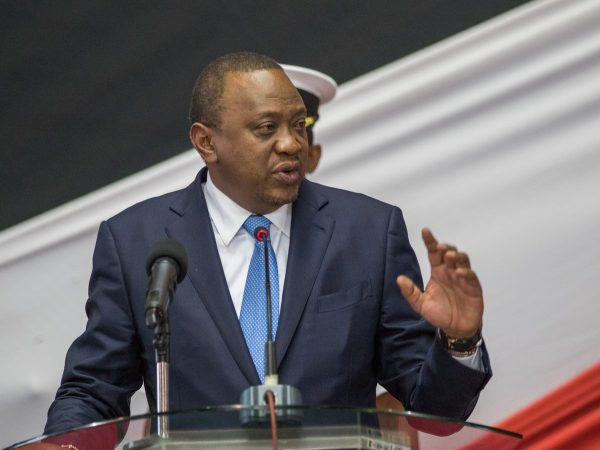Former Kenyan President Uhuru Kenyatta has called for investment in the country’s human capital by creating viable social and economic pathways for the youths to actualize themselves.
Kenyatta also cautioned against the dangers of unfulfilled promises for youth in Nigeria and other African countries.
He noted that the exposure, digital savviness, and huge numbers of young people across the continent could empower them to push back against any system that fails to address their needs.
Kenyatta made this statement while delivering the inaugural lecture for Course 33 at the National Defence College Nigeria on Monday in Abuja.
He said, “Having fed our young people on a steady diet of unfulfilled promises and deferred dreams, they now find themselves at a point where their exposure and their digital connectedness in this information age puts them at a numerical and intellectual advantage.
“They are well equipped to push back against an antiquated system of patronage that disregards the voices of young people.”
The former Kenyan leader stated that investment would help the economic growth of the various countries in Africa.
He said, “Today, the much-touted demographic dividend of our youth has matured, and our young people would like to cash in their cheques immediately.
“Unfortunately, across our continent, our youth are now confronted with governments that appear to have been caught flat-footed by this surge in demands from a demographic that forms over 70 per cent of our productive population.
“I maintain the view that investment in our human capital by creating viable social and economic pathways for our youth to actualize themselves is a necessary part of strengthening our institutions.”
The former president said the police and military forces must become the only actors with the legitimacy to wield violence to be able to address insecurity effectively.
He said that the military and the police forces must be regarded as ready, willing and able to secure the persons and property of all citizens.
According to him, the monopoly of violence also includes the analytical ability to perceive threats and effective communication to shape perceptions of the state’s deployment of violence.
“Our pastoralist conflicts, for one, as well as the numerous militia formations in parts of the country, are indicative that we are still not where we should be in this regard,” he added.
The Commandant of NDC, Rear Adm. Olumuyiwa Olotu, said the inaugural lecture was organised to inaugurate the participants into the course and to prepare them for the scholarly activities in line with the mission of this college.
“The mission is to Develop future leaders sufficiently equipped with the requisite knowledge and analytical skills necessary to harness the instruments of national power in a dynamic defence and security environment,” he added.
Olotu said the college had, since its establishment in 1992, graduated over 2,000 senior officers of the Armed Forces of Nigeria, the Nigeria Police Force and other security agencies.
He said that they also include senior civilian officials from strategic ministries, departments, and government agencies who went on to serve the country meritoriously at the strategic level.
He added that NDC had also trained several senior military officers from friendly nations in Africa, Asia, Europe, and South America.
“The current Course 33 is composed of a total of 100 participants, comprising 54 officers of the Nigerian Armed Forces, five Nigerian Police Force officers and 18 personnel from the Ministries, Departments and Agencies.
“There are 23 international participants from 19 countries, including Benin Republic, Botswana, Brazil, Burkina Faso, Cameroon, Congo, Egypt, Gabon and The Gambia.
“Others are Ghana, India, Kenya, Liberia, Mali, Morocco, Nepal, Sierra Leone, Tanzania, and Zimbabwe,’’ he said.
